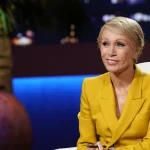
Credit: Inc Magazine
Highlights
- Shark Tank has acquired global dominance due to many landmark deals over 15 years of time.
- Another side of the story reveals how Sharks keep entrepreneurs hanging by choosing to withdraw from a promised deal.
- Read through intrinsic details about Sharks’ backing out of deals, from legal complications to impacts on the show’s authenticity.
The total number of reality shows has seen a huge spike in recent years. Out of the many, Shark Tank has evolved as a legacy show that has bettered the lives of many entrepreneurs. A Shark Tank deal from the right investor has enabled businesses like The Comfy, Scrub Daddy, and Bombas to become the most sought-after products.
This is why every year, entrepreneurs hailing from diverse industries come on the show to try their luck. The pitchers present their business ideas to the wealthy judges in the hope of securing a Shark Tank deal that could propel their company’s growth.
On the other hand, after analyzing different aspects of the business, the investors decide whether to invest. If both parties feel the deal could be mutually beneficial, they shake hands and commit to working together in the future.
But is it really as simple as it appears on the television? The answer is NO.
The Handshake Does Not Guarantee A Deal
If you observe, before every episode, a disclaimer appears stating that the panel members can make investments ‘as per their discretion.’ This implies that the Sharks’ decision to pour money into any business is an independent one.
The general nature of the show is such that after a deal is made, the judge/judges stand up, go to the pitcher, and shake hands as a gesture of future collaboration. However, this handshake agreement should not be confused with the final deal.
Instead, you should view it as a form of verbal negotiation and the first step towards thinking of making the actual investment. All you see in the show is just the Sharks saying ‘yes’ to the businesses that have the potential for profit.
Another way to understand it is to think of it as a forum for entrepreneurs to introduce themselves to investors and have a conversation.
In the end, it is just a show for entertainment purposes. The real-life stuff follows after this and is a completely different story. There is no guarantee that even after the handshake on live TV, any of the Sharks will actually work on the promised deal.
Reasons For Withdrawal From A Deal
To avoid complications, the Sharks have their team perform some due diligence on the company after almost every deal is made. Financial records and sales need to be analyzed before the judges actually invest in any Shark Tank deal.
Nobody would want to invest serious amounts of money without a detailed financial review of the company. This process is called “due diligence,” and probably close to half of all deals fall apart during the discovery process.
Many entrepreneurs do not disclose critical information related to their company. In some cases, they even lie about their patents or licensing.
There are also cases where the Shark and entrepreneur have different visions for the future. After the episode is filmed and the actual conversations unfold, the Sharks may realize that they have a conflict of some type, which can be detrimental to future business decisions.
Often, they find that what the entrepreneur said and what is true are two different things. At times, the entrepreneurs are overbearing for the Shark to deal with during initial conversations.
All these are reasons why Sharks withdraw from a deal before signing on Shark Tank.
No Legal Aspect Involved
Wealthy investors can act freely because Shark Tank is not legally binding. No contractual obligations are made on the deals during the show. This is possibly why we often hear a deal was not closed or did not fall through after the episode is telecasted.
Many deals prove this fact. One of these is ‘You Smell Soap.’
Megan Cummings brought the company to the investors. The investment sought was $55K for 20% equity. The company offered a range of luxury scented soaps in lavender, mint, and lemon fragrances.
Megan managed to secure a deal from Robert Herjavec, who agreed to pay her the same valuation as requested, along with a salary of $50K. But what followed was not a pleasant affair. She never received the promised amount from Robert.
Following this, Robert offered her $55K for 50% equity, which she rejected. The matter took a worse turn when Robert received extreme criticism from the media for his approach to the deal.
Implications On Authenticity
As for how genuine the show is, these instances do not affect the authenticity of the show to a considerable extent. At the end of the day, it is a reality show, and everything that you see is entirely for entertainment.
But what keeps Shark Tank going is that the investors are genuinely in there negotiating and giving feedback and criticism. When the Sharks back out, it is because of their lack of expertise in the business pitched to them, the entrepreneur’s wrong attitude, or simply because the product is not good enough.
To Conclude
Keeping up with the spirit of the ‘American Dream,’ Shark Tank has helped countless entrepreneurs open the doors to the vast possibilities of the business world. But in many cases, the experience was dreadful for them when their Shark Tank deal was never translated into reality.
The Sharks may choose to withdraw from a deal as there are no legal complications throughout the process. Despite this, pitchers keep coming every year owing to the valuable lessons they can obtain from experienced judges during their pitch presentations.




















